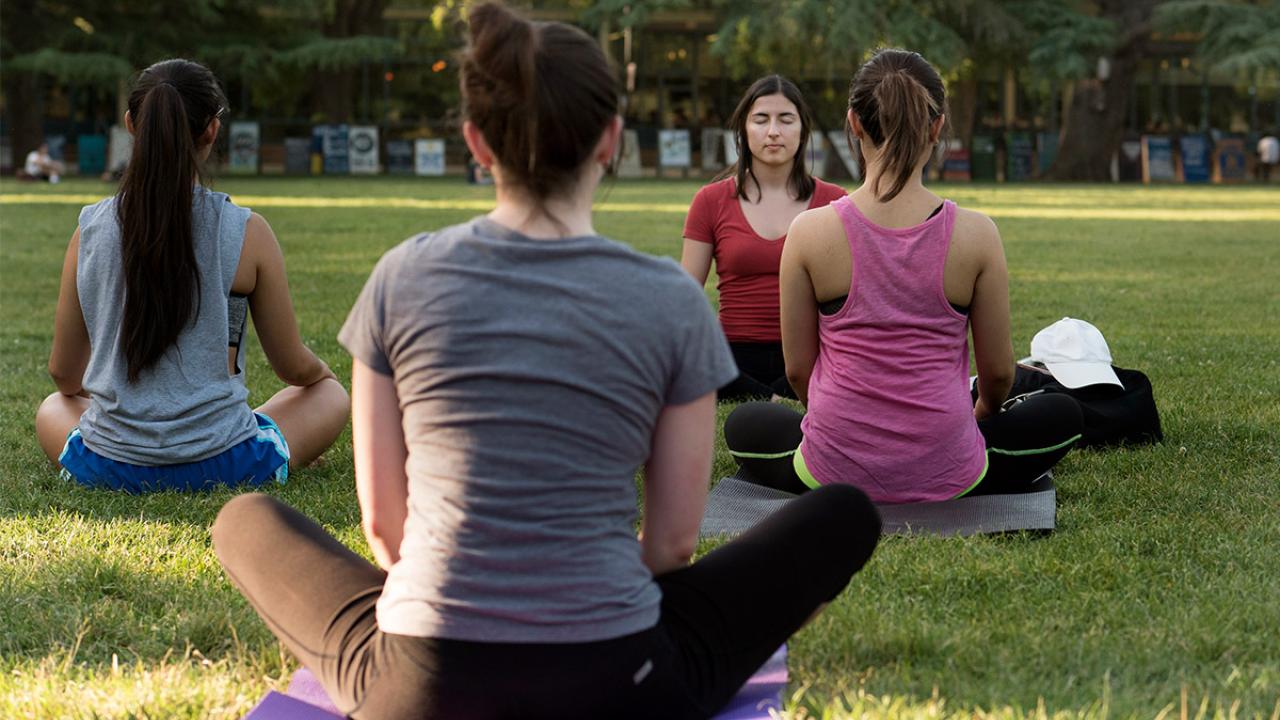Quick Summary
- Peter Yellowlees praises UC Davis Health staff for efforts to “flatten the curve”
- A psychiatrist, he also offers tips for us all, to better manage the anxiety and fear
- Tips include get good information, connect with people you love, look after yourself physically
Peter Yellowlees, chief wellness officer at UC Davis Health and a professor in the Department of Psychiatry and Behavioral Sciences, sent this letter to the Sacramento campus today (March 12):
It has been amazing to watch how incredibly professional and caring all UC Davis Health staff have been over the past two weeks since the evolution of the COVID-19 outbreak, and our intimate involvement.

Thank you to everyone. From the clinical teams in intensive care, to the many clinical and administrative staff in the emergency department and our multiple outpatient clinics, to all of those who keep our health system running by providing support, nourishment and hotel services for our staff and patients. Thank you all.
Remember that the majority of our public health and individual efforts are being made in order to “flatten the curve” of new infections, so that the impact on health care capacity (mainly intensive care beds, ventilators and us (as a limited supply of critical staff) is spread over time and is more manageable. So canceled or reduced outpatient appointments and increased use of video and other technologies, when possible, is good for all of us.
While all of the cancellations and disruptions we are hearing about in the news may also seem unsettling, these are all actually good news for those of us in health care, so that infection spread slows, and that health care resources are better able to manage patients who become critical.
Anxiety and fear are normal responses
Having said that, not surprisingly, the uncertainty surrounding the pandemic makes all of us anxious and afraid. This is a normal human response. It is normal to become hypervigilant, especially with our nonstop media. It is normal to be concerned when we feel out of control, and when we are hearing about a possible future catastrophe, especially when fed with differing sets of information from multiple sources and countries. Not being anxious or afraid is actually the abnormal response to this situation.
So what can we all do to help better manage our anxiety and fears? Here are some straightforward tips that I am using, and which I hope are helpful for you:
- Try to make sure that you are getting good information about the situation. Now is not the time to get all your information from social media. Read the updates on The Insider here for reliable local information and data, and try to listen to professional news organizations, local and national. Obviously, follow all infection control protocols, and help each other understand these requirements as they will inevitably change over time.
- Take action and practice social distancing so that you remain as much in control as you can. Do little things regularly. This will make you feel psychologically better and safer, as well as reduce the risk of transmission. Take the essential precautionary measures we are all being asked to take. Wash your hands. Do not shake hands. Clean shared items. Do not go to large public gatherings. Minimize large group travel as much as you can. Use video to see your patients or your own doctor. Make your individual actions count, and contribute through them to making us all safer.
- Connect and reconnect with people you trust and love. See your family, your partner, your children, your friends. Speak to them on the phone and nourish those relationships. See how they feel and care for each other. They will be worried about you. Reassure them. Be in the moment with them and use the importance of these relationships to give yourself a chance not to overthink any fears you might have.
- Look after yourself physically. Physical fitness is good for your mental health. Go to the gym (with some wipes!), enjoy long walks, do some active group outdoor activities, take the weekend off and don’t work excessively. Sleep well — at least seven to eight hours. Try to get away from work. Yoga or tai chi are great for relaxation, as are some apps. One that I use personally is CBT-I Coach — a free app made by the VA for veterans, which has a series of really excellent meditation and relaxation tools.
- Be careful with any large decisions you are making that may affect the lives of yourself and your loved ones. Don’t panic or let panic excessively influence or take over any decision-making that you have. Think about your decisions and try to take the long view. Check out any big decisions with your spouse, partner or a close friend. This is not a time to be making sudden big decisions that may be being driven unconsciously, in part at least, by your fear and anxiety.
- Realize that all of these “societal disruptions” are actually good for us in health care — and help your family and friends to understand the importance of slowing the disease’s spread. That’s good for health care, and good for everyone.
And, finally, if you are really getting distressed, remember that there are many resources available for you here, and helpful supports available through the university system regarding your finances, legal issues or almost any other concerns you have.
Remember, to quote Dr. Kirk: “This is what we do.” We should all be proud of our work and our caring. And we all need to look after ourselves and each other. So, if there is anyone that you are worried about, please pass this message on.
My best wishes to everyone, and thank you for all that you do.
Peter Yellowlees
Chief Wellness Officer, UC Davis Health
